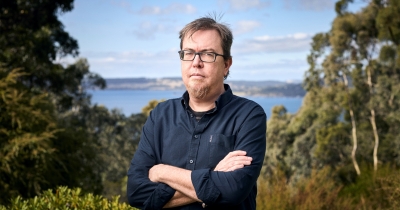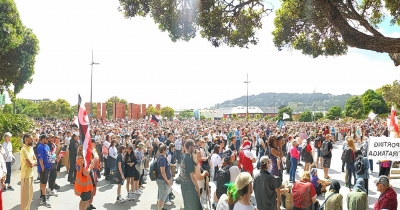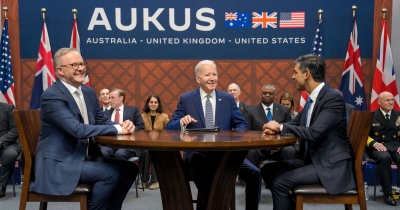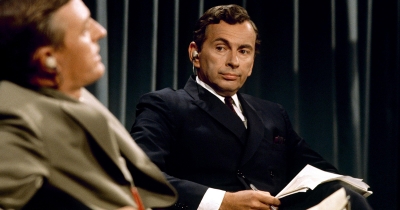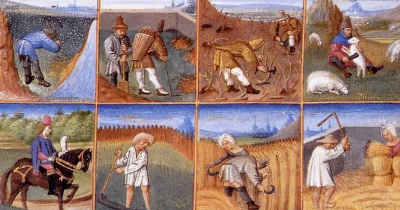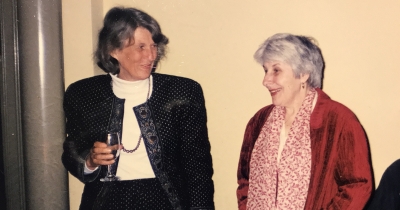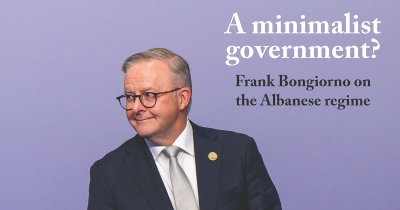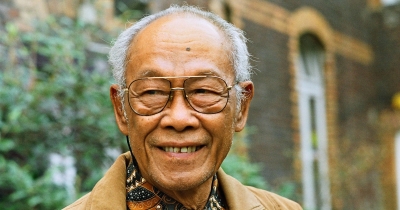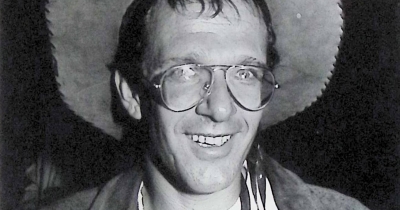Commentary
It is only a coincidence that my book Frank Moorhouse: Strange paths, the first in a two-volume cultural biography of the Australian author, ends in 1974 – the same year that Copyright Agency was incorporated – and that it was published in time to celebrate the fiftieth anniversary of this incorporation. As Moorhouse himself always argued, such coincidences, chance happenings, and historical accidents are often far more important in shaping our culture than we like to concede.
... (read more)From across the ditch, New Zealand can look like a place where settlers and Indigenous people have forged a successful, postcolonial modus vivendi. The image conceals more than it reveals. As in Australia, relations between Indigenous people and the state are fraught. At the November 2023 election, right-wing minority parties won electoral support by rejecting what they have characterised as special privileges to Māori. And a long-standing, bipartisan consensus on ‘biculturalism’ is breaking down.
... (read more)When the former Labor prime minister Paul Keating appeared at the National Press Club in March 2023 to savage the bipartisan commitment to acquire nuclear-powered submarines under the AUKUS agreement, he did so only days after Anthony Albanese had stood alongside his British counterpart Rishi Sunak and US President Joe Biden in San Diego to announce the ‘optimal pathway’ for the agreement. Fluttering above them were the respective flags of the three nations. In the background lay berthed the USS Missouri, a Virginia class submarine lined with American sailors and festooned with its own bunting. But as Keating noted in typically pungent fashion, on that day ‘there was only one payer: the Australian prime minister … there’s three leaders standing there … [but] only one is paying … our bloke, Albo. The other two, they’ve got the band playing, happy days are here again.’
... (read more)Gore Vidal (1925–2012) emphatically rejected any conventionally religious version of an afterlife. In an essay, ‘Armageddon?’ (1987), he contrasted his own view on the matter with that of Norman Mailer. ‘[B]ecause there is no cosmic point to the life that each of us perceives on this distant bit of dust at galaxy’s edge, all the more reason for us to maintain in proper balance what we have here. Because there is nothing else.’ Five years later, in Screening History, a meditation on the significance of cinema in his own life, Vidal suggested that the medium of film offers an alternative possibility of immortality.
... (read more)Say, you’re a school teacher in the Kimberley region of Western Australia, and you’re looking for a play for your class to perform that is set in Broome. Or maybe you’re a crime writer playing with the idea of writing a novel set in Sydney and want to check out what other crime novels have been set there. Perhaps you just found out that your great aunt once wrote a series of poems, and you want to know more. It could even be that you’re an author wanting to find the reviews of your latest short story collection. All this, and more, can be found in AustLit. Scholars of Australian literature know how valuable AustLit has been for over two decades, but anyone with an interest in Australian literary culture will find something worth exploring in Australia’s national literary database. AustLit will not only answer your questions, it will surely inspire more.
... (read more)Few terms capture the imagined structure of European history as succinctly, and aptly, as ‘the Middle Ages’. Whether the era is being invoked fondly, casually, or with deep disdain, the term at once offers a comprehensive, normative account of civilisation and casts aspersions on those out of sync with it. It was designed to do just that. ‘The Middle Ages’ inserts itself as an antithesis between two seemingly cohesive periods: Antiquity and the Renaissance (the latter soon to be replaced by Enlightenment and then Modernity). It thus creates continuity by underscoring rupture, and stresses similarity through difference. Despite the era’s appeal to the Romantics and nascent nationalism in the late eighteenth and the nineteenth centuries, respectively, its poor reputation has been steady: from Jules Michelet’s quip about ‘the Middle Ages’ being ‘one thousand years without a bath’, to Quentin Tarantino’s Pulp Fiction, where Marsellus Wallace famously vows ‘to get medieval’ on his torturer’s ass.
... (read more)Back in the 1970s, when I went up to Katerina Clark’s place in Connecticut for the weekend, I was always a bit on my guard. Katerina was a wonderful and generous friend, but inquisitive. Being young, I had things in my personal life I wanted to hide. A silent tussle went on between us as she did her best to ferret them out (probably knowing from her other sources more or less what they were) and I stone-walled.
... (read more)The Journal of Australian Political Economy (JAPE) recently published a special issue to mark the (presumed) halfway point of the Albanese Labor government. There was an editorial and nineteen articles. As you would expect, the verdict was mixed. The most striking thing to me, however, was that the authors had enough material to work with. A similar exercise for the Abbott and Morrison governments would have produced the problem faced by Old Mother Hubbard. The Turnbull government might just have provided her poor doggy with a bone, but one without much meat on it.
... (read more)What was the best decision Brian Johns ever made?
In 2005, Johns – legendary leader of Penguin Books Australia, publisher of Elizabeth Jolley, Thea Astley, Frank Moorhouse, and so many others, and later managing director of the ABC and SBS – nominated his publication of the Buru Quartet, by Indonesian author Pramoedya Ananta Toer. Johns was speaking at an event for Pramoedya’s Indonesian editor and publisher Joesoef Isak, who was receiving the inaugural PEN Keneally Award for publishing. This may have been a case of politeness on Johns’s part, but there are reasons to think this was likely a more considered assessment.
... (read more)Last year I turned eighty. Vacillating between denial and celebration, I decided, with some trepidation, on the latter. It was thirty years since I had last had a big birthday party: this one needed to be special. I consoled myself that, old as I am, I am still younger than the president of the United States, Mick Jagger, and the pope.
... (read more)

